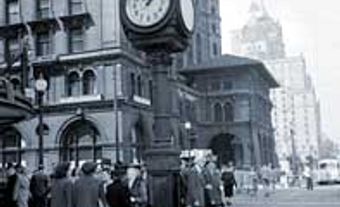Settlement
Hudson's Bay Company employees, led by Adam Horne, started fur trading with the Coast Salish and Nuu-Chah-Nulth (Nootka) in the 1850s. The English shipping firm Anderson and Company erected a sawmill in 1860. Pioneers came to the area to farm and mine, and many eventually turned to logging.
Development

Fishing and forestry have long been important to the economy of Port Alberni. The area became a major forestry centre after the Second World War. In the 1970s, Port Alberni had one of the highest per capita incomes in Canada, based largely on forestry and fishing. The city was formerly the largest integrated wood-products site outside of Vancouver. In the 1980s and 1990s, a general downturn in the forestry industry resulted in massive layoffs and a decline in the local economy. MacMillian Bloedel’s plywood mill was shut down in 1991, after more than 50 years of operation.
Economy
Since the 1990s, sawmills have been modernized and there has been a shift to specialized products. The paper mill, operational since 1947, is also producing specialty products. The city's ice-free port mainly handles locally produced forestry products destined for foreign markets. The commercial fishing industry has also suffered in recent years, but sport fishing is a major part of the growing tourism industry.
Cultural Life
Port Alberni has a marina in the heart of the city, the Echo '67 Centre (library, museum, pool and meeting complex) and the Rollin Arts Centre. Attractions include McLean Mill National Historic Site — a restored steam sawmill — as well as a steam train and museums. Looming over the city is Mount Arrowsmith, the highest peak on southern Vancouver Island, popular for skiing and hiking. Canada's highest waterfall, Della Falls, 60 km from Port Alberni, is accessed via Great Central Lake. Another large lake in the area, Sproat Lake, is famous for its petroglyphs.

 Share on Facebook
Share on Facebook Share on X
Share on X Share by Email
Share by Email Share on Google Classroom
Share on Google Classroom

